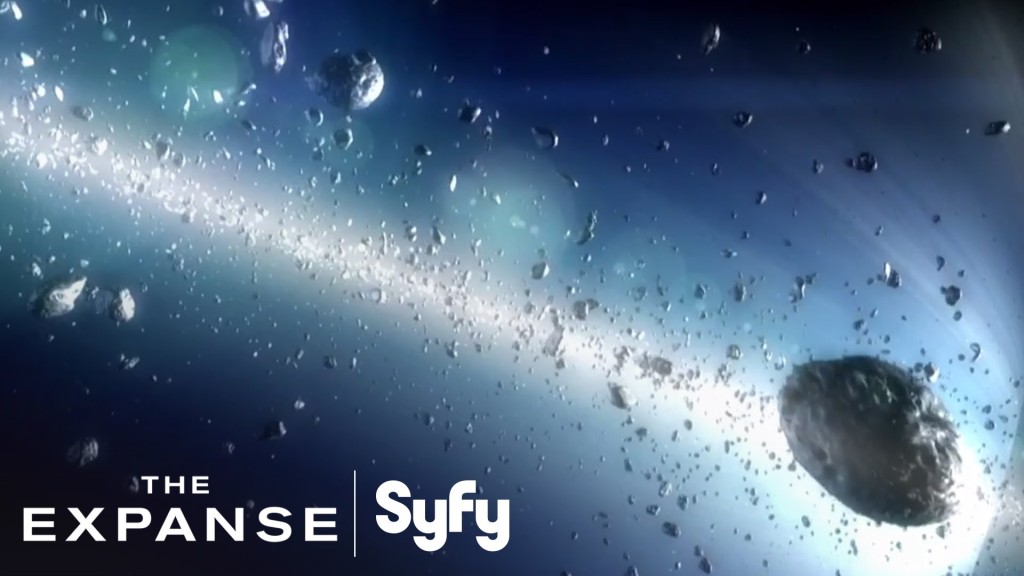
Space exploration is enjoying its greatest popularity revival since the Cold War, both in entertainment and the realm of human imagination. Thanks in large part to blockbusters like Gravity, The Martian and Interstellar, not to mention privatized innovation from companies like SpaceX, and fascination with inter-galactic colonization has never been more trenchant. Despite the brimming enthusiasm, there hasn’t been a film or TV series that has tackled the subject matter in a nuanced way. Until now. The Expanse, ambitiously and faithfully adapted by SyFy Channel from the best-selling sci-fi book series, is the best space epic series since Battlestar Galactica. It embraces similar complex, grandiose and ethically woven storylines of human survival and morality amidst inevitable technological advancement. Below, a full ScriptPhD review and in-depth podcast with The Expanse showrunner Naren Shankar.
200 years in future, humans have successfully colonized space, but not without discord. The Earth, overpopulated and severely crunched for resources, has expanded to the asteroid belt and a powerful, wealthy and now-autonomous Mars. Though the colonies of the asteroid belt are controlled by Earth (largely to pillage materials and water), its denizens are second-class citizens, exploited by wealthy corporations for deadly labor. Inter-colony friction, class warfare, resource allocation and uprising frame the backdrop for a political standoff between Mars and Earth that could destroy humanity.
Deeper questions of righteous terrorism, political conspiracy and human rights are embodied in a triumvirate of smart, interweaving plots that will eventually coalesce to unravel the fundamental mystery. Josephus Miller (Thomas Jane) is a great detective, but a lowly belter and miserable alcoholic, mostly paid to settle minor Belt security and corporate matters. But when he’s hired to botch an investigation into the disappearance of a wealthy Earth magnate’s family, Miller starts to uncover dangerous connections between political unrest and the missing heiress. Jim Holden (Steven Strait) is a reluctant hero – a “Belter” ship captain thrown into a tragic quest for justice – who unwittingly leads his mates directly into the conflict between Mars and Earth and, as he delves deeper, unravels a potentially calamitous galactic threat. Finely balancing this tightwire is Chrisjen Avasarala (Shohreh Aghdashloo), the Deputy Undersecretary of the United Nations, who must balance the moral quandaries of peacekeeping with a steely determination to avoid war at all costs.
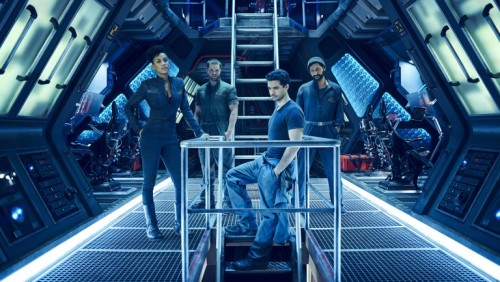
Colonization is a very trendy topic right now in space and astrophysics circles, particularly on Mars, having discovered liquid water, which fosters favorable conditions for the evolution and sustainability of life. Could it ever actually happen? There would certainly be considerable engineering and habitability obstacles.
For now, modest manned exploration of Mars and Europa by human astronauts is a tentative first step for NASA.
The Expanse assumes all these challenges and explorations have ben overcome, and picks up at a time when humans biggest problem isn’t conquering space – it’s conquering each other. The show is sleek and very technologically adept, in direct visual contrast to the more dilapidated environment of Battlestar Galactica. Fans of geek chic technology can ogle at complex docking stations as ships move around the belt to and from Earth and Mars, see through tablets, pills that induce omniscience during interrogations and ubiquitous voice-controlled artificial intelligence. However, though a new way of life has been established, remnants of our current quotidian existence and human essence are still instantly recognizable. This isn’t the techno-invasive dystopia of Blade Runner or Minority Report.

Like, Battlestar Galactica, (a show The Expanse will invariably be compared to) there is a crisp, smart overarching commentary on human existentialism under tense circumstances. Survival and life in space. Adapting to the changing gravitational forces and physical conditions of travel between planets and the asteroid belt colonies. Most importantly, navigating the incendiary dynamics of a species on the brink of all-out galactic warfare. As show runner Naren Shankar mentions in our podcast below, all great sci-fi is historically rooted in allegory – the exploration of disruptive technological innovation (and the fear thereof) as a symbol of combating inequality and/or political injustice. At a time of great social upheaval in our world, a fight for dwindling global resources and against proliferating environmental devastation, many of the themes explored in The Expanse books and series are eerily salient. Perhaps they also act as a reminder that even if a technological revolution facilitates an eventual expansion into outer space, our tapestry of inclinations (good and bad) is sure to follow.
Naren Shankar, the executive producer and show runner of The Expanse, helped develop the adaptation of the sci-fi series buoyed by decades of merging the creative compasses of science and entertainment. A PhD-educated physicist and engineer, Shankar was a writer/producer on Star Trek: The Next Generation, Almost Human and Grimm, as well as a co-showrunner of the groundbreaking forensics procedural CSI. Dr. Shankar exclusively joined the ScriptPhD.com podcast to discuss his transition from PhD scientist to working Hollywood writer, the lasting iconic impact of Star Trek and CSI and how The Expanse evokes the best allegory and elements of the sci-fi genre to tell an existential narrative. Listen below:
*****************
ScriptPhD.com covers science and technology in entertainment, media and advertising. Hire our consulting company for creative content development. Follow us on Twitter and Facebook. Subscribe to our podcast on SoundCloud or iTunes.
As part of an ongoing recommitment to its sci-fi genre roots, SyFy Channel is unveiling the original scripted drama Ascension, for now a six hour mini-series, and possible launch for a future series. It follows a crew aboard the starship Ascension, as part of a 1960s mission that sent 600 men, women and children on a 100 year planned voyage to populate a new world. In the midst of political unrest onboard the vessel, the approach of a critical juncture in the mission and the first-ever murder onboard the craft, the audience soon learns, there is more to the mission than meets the eye. Which can also be said of this multi-layered, ambitious, sophisticated mini-series. Full ScriptPhD review below.
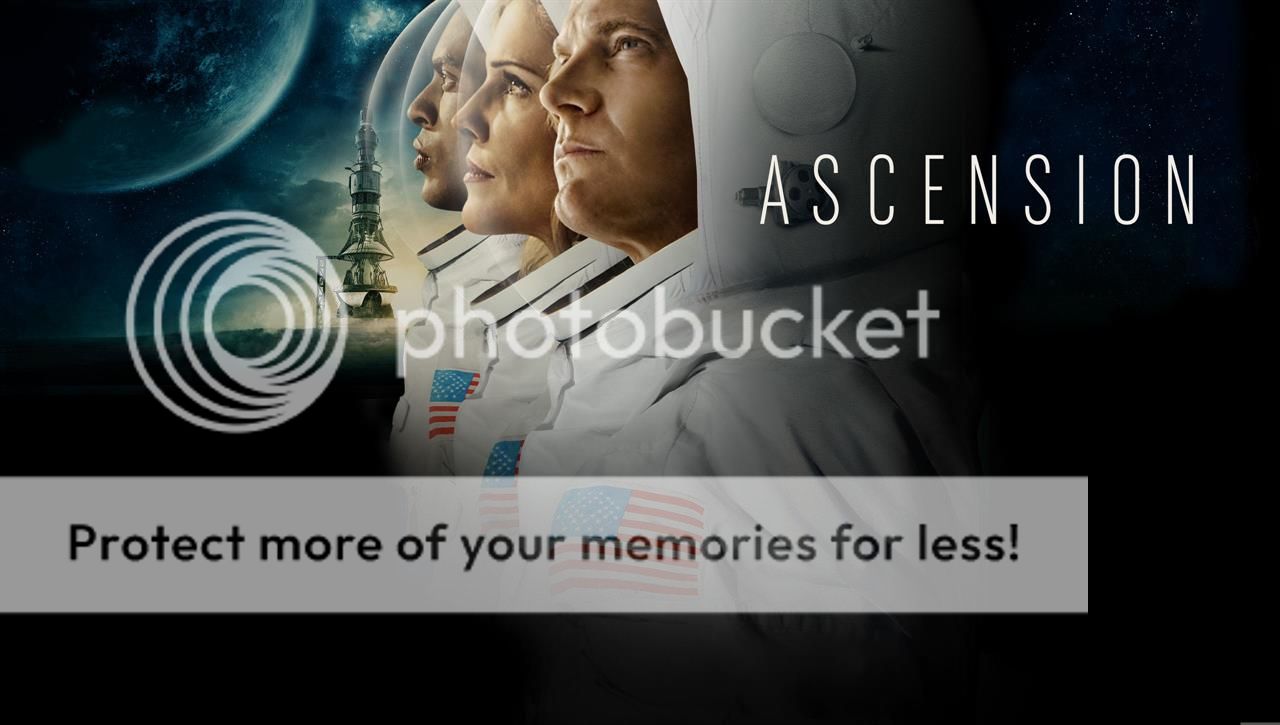
In the late 1950s and early 1960s, largely fueled by the heigh of Cold War tensions with the Soviet Union and fears of mutual nuclear destruction, the United States government, in conjunction with NASA, launched a project that would have sent 150 people into various corners of space — from the Moon, to Mars and eventually Saturn. Code-named Orion, the project officially launched in 1958 at General Atomics in San Diego under the leadership of nuclear researcher Frederick deHoffman, Los Alamos weapons specialist Theodore Taylor and theoretical physicist Freeman Dyson. Largely fueled by Dyson, Orion’s aim was to build a spacecraft equipped with atomic bombs, that would propel the rocket further and further into space through a series of well-timed explosions (nuclear propulsion). The partial test ban treaty of 1963 ended the grandiose project, which remains classified to this day.
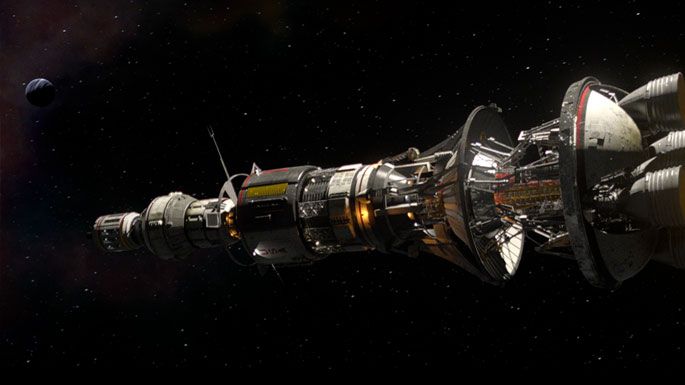
Ascension is the seamless fictional transition borne of asking “what if” questions about the erstwhile Project Orion. What if it never ended? What if it was still ongoing? What would be the psychological ramifications of entire generations of people born, raised and living on a closed vessel? Is human habitation of other planets an uncertainty or inevitability? And so Project Orion continued on as Project Ascension, under the hands of Abraham Enzmann. A crew of 600 was sent off into space not knowing the fate of humanity, frozen in time, and as far as they know — all that would be left of mankind.
Ascension carries on in the vein of stylish series such as Caprica, Helix and Defiance, with sleek sci-fi gadgetry and a spaceship capable of mimicking an entire world (including a beach!) for 100 years. This is no dilapidated, aging Battlestar Galactica. However, because time is frozen in the 1960s, all technology, clothes and cultural collections reflect that era — think Mad Men in space. Nostalgia reigns with references to the Space Race via speeches from President Kennedy, along with film and television cornerstones of that era.
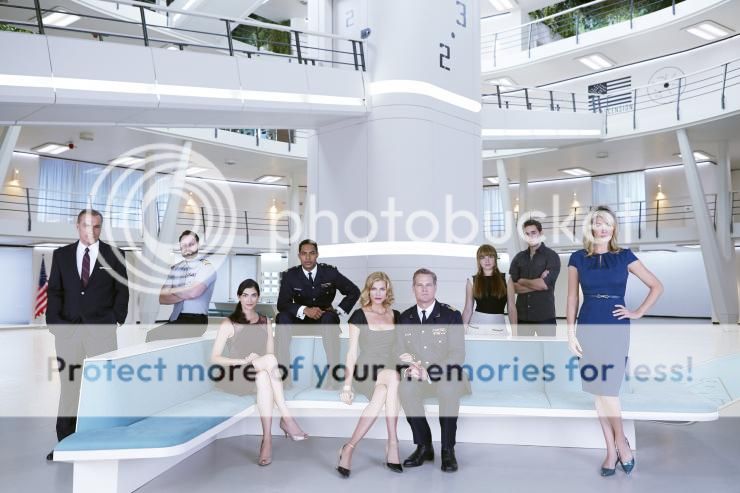
51 years into the mission, on the evening of the annual launch party celebration, a kind of Ascension independence day, the unthinkable happens: the first ever murder onboard the ship. Captain William Denninger puts first officer Aaron Gault in charge of investigating. Soon, the motives for the murder become convoluted amidst internal politics and the looming “Insurrection,” a point of no return in which communication with Earth is no longer possible.
This year’s space epic Interstellar explored the science of traveling 10 billion light years away from Earth – ambitiously but not without factual fault. And to be sure, Ascension will address the challenges and physics of nuclear propulsion to the far reaches of space, starting with a radiation storm midway through the first episode. But rather than bogging itself down in the astrophysical minutiae of space travel, Ascension smartly focuses on the human drama and existential questions such a voyage would incur, precisely what made Battlestar Galactica such compelling sci-fi television. Would there be internal psychological ramifications to this journey? All residents of the ship seem to go through an adolescent period termed “The Crisis,” where they come to grips with the fact that they have no future, and a pre-determined fate. Furthermore, the murder victim’s young sister appears to be a “seer” with telekinetic insight into the nefarious inner workings of the ship.
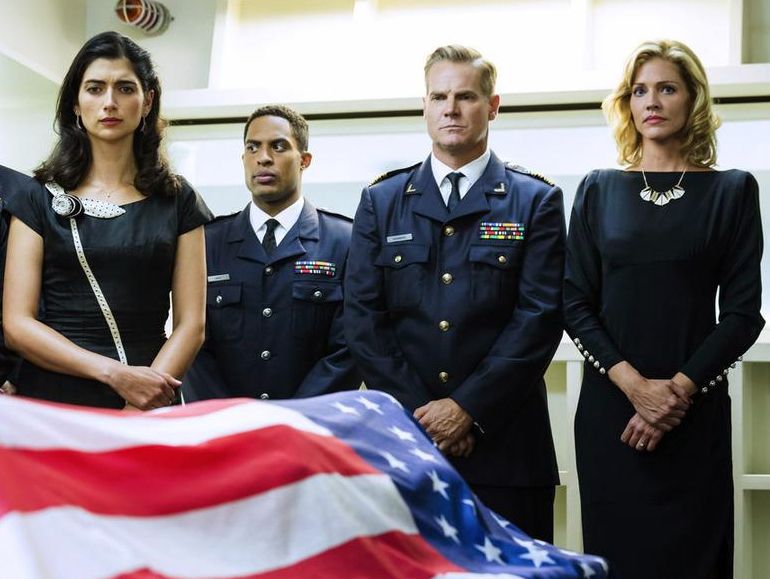
Would there be class division and political turmoil aboard such a confined community? There is a decidedly troublesome rift between the ranking officers of the upper quarters and the “Below Deckers”: butchers, steelworkers and other blue-collar craftsmen that appear on the edge of a revolt. Compounding their efforts are the Captain’s wife, Viondra Denninger (whom fans will recognize as Cylon Number Six from BSG), a cunning, manipulative power broker and the man seeking to wrestle control of the ship from her husband. Back on Earth, we meet Harris Enzmann, the son of the dying Project Ascension founder. Seemingly a low level government engineer, nor remotely interested in preserving his father’s legacy, his role in Project Ascension is convoluted yet significant.
Project Ascension is indeed an experiment critical for human survival — just not the one anyone onboard thinks it is. Amidst an awakened collective imagination about space exploration, including 2015’s IMAX Mars mission movie Journey To Space, this is one sci-fi mission worth taking.
View a trailer for Ascension:
Ascension is a three-day mini-series event on SyFy Channel, beginning Monday, December 15.
~*ScriptPhD*~
*****************
ScriptPhD.com covers science and technology in entertainment, media and advertising. Hire us for creative content development.
Subscribe to free email notifications of new posts on our home page.
]]>
